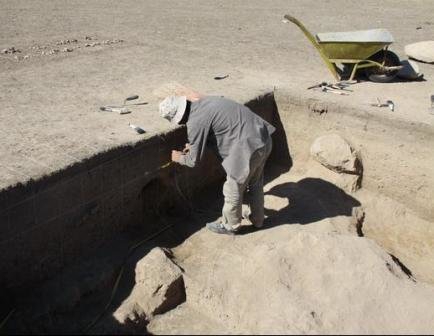Ali Behnia, local official of Cultural Heritage Research Center told reporters on Tuesday that the hill had been registered on the national heritage list in 1998; �the difficulties of protecting the ancient hill rise from the illegal expropriations of land in the vicinity of the hill; the housing schemes have exacerbated the problem, with levelling operations threatening the site,� he added. �Archaeology Research Center thus carried out a project to demarcate the hill with agreement of the local office; accordingly, 13 excavations delved deep into the history of the region and found valuable items from historical and Islamic times; the�tombs contain human bones, a skull, remains of brick and stone architecture, along with pottery bearing parallel scriptures belonging to the Islamic periods,� he detailed.
Still in a related story, this time in the northwest of the country, the repair and reconstruction of Qoban, a Timurid fort in Makou, will start in upcoming month of November. Ali Khorablou, head of local Cultural Heritage office told reporters.
�The reconstruction will be a joint venture of Cultural Heritage Organization and Makou Free Zone Organization; the tentative repairs had revived the bath, towers, and parts of walls during past decade; the natural weathering had ruined the major bulwarks of the fort, where the repair has been started,� Khorablou added.
He also said that the first season of an archaeological investigation would examine the fort in upcoming month; �tunnels lead to the highest point of the fort, leading the viewers in tortuous and difficult crosses; the evidence shows that tunnels functioned as hidden paths for scape in times of emergency,� said the official.
By Mehr News Agency
# Tags











